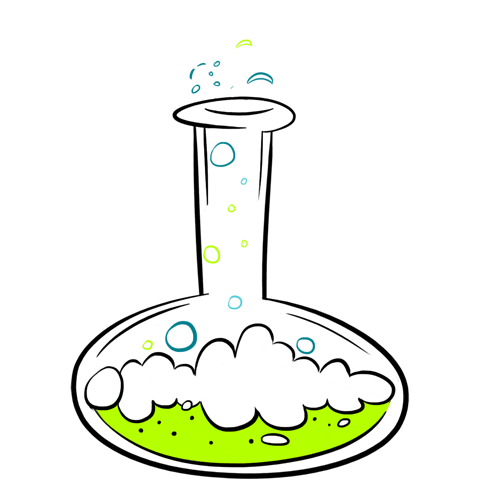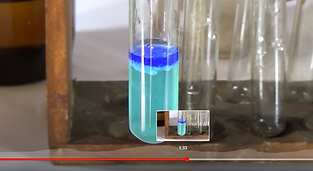WEEK 8
Classes 1 and 2:
Detecting Chemical Reactions
In a chemical reaction, new products are formed from
the reactants. How can you tell this has happened?
There are a few clues you can look out for that might
mean a reaction has taken place.
In some cases, a gas is given off, or heat is produced.
Sometimes you can see a color change or you can
check a chance in the pH using an indicator.
Some reactions between two liquid reactants can
produce a solid precipitate.
Today, we will watch videos about different reactions taking place and we will identify how we can tell a reaction is happening.
In each point you will watch the video of a reaction, you must click on the image to go to the link of the video:
1. Watch the following video (you will only need to watch some specific parts)
a) Write the word equation for this reaction
b) Write the chemical equation
c) At the end of the reaction, what was the
clue or change you could easily identify to
know that a reaction took place?
2. Watch the video. You can use the information from last the class about reactions with acids to have the formulas.
a) Write the 2 word equations (One for Mg,
one for Zn) (They are 2 different rxns)
b) Write the chemical equations.
c) How can we know that a reaction has
taken place?
3. Watch the video about Potassium and water
a) Write 3 changes that happen during the reaction
b) Write the word and chemical formulas
c) Investigate why is Potassium called an alkali
metal, what does this mean?
4. Sodium hydroxide and hydrochloric acid react to produce sodium chloride and water. Watch the video and answer the questions:
a) Write the chemical equation
b) What happens to the sodium hydroxide
when he adds the phenolphthalein?
c) What happens when he mixes both
reactants?
d) Investigate what is the name of a reaction
in which an alkali neutralizes an acid?
5. Silver nitrate and calcium chloride react to form silver chloride and calcium nitrate. Watch the video and answer: (the rxn starts in minute 2:25)
a) Write the chemical equation (no video
needed for this)
b) What is the change that allows you
to know that a reaction took place?
6. Using what you learnt during the previous classes, create a word search game (sopa de letras) with clues to find the following terms:
Element Products
Chemical Precipitate
Physical Rusting
Mixture Solution
Reactants Reaction
Compound Combustion
Today we will work on some topics that are evaluated in the Cambridge exams and that are closely related to chemical reactions.
For this, we will solve the following worksheet individually in a piece of paper and at the end of the class you have to hand it in to the teacher



Class 3: Reactivity Series and Cambridge preparation






